RTX test shows that SAF works and is GREEN

Aviation’s Biggest Green Aviation Goal is Net Zero Carbon Emissions by 2050 and one of its promising strategies to reach that mark involves Sustainable Aviation Fuels (SAF). The FAA has stated that “These fuels will play a CRITICAL ROLE, alongside new aviation technologies and more efficient operations, in meeting the industry supported…”.
Theabove location and the below, well-illustrated story report a propitious test of a V2500, , made by IAE International Aero Engines AG, for its emissions in MTU’s maintenance, repair and overhaul facility in Hannover, Germany.
The IAE consortium includes Pratt & Whitney Aero Engines International (PWAEI), Japanese Aero Engines Corporation (JAEC), and MTU Aero Engines AG. That global partnership of some of the most renowned powerplant manufacturers highlights their collective support of the 2050 Zero Goal. Their financial investment underlines the massive expenses involved in the research, engineering and development required for this transition to new fuels.
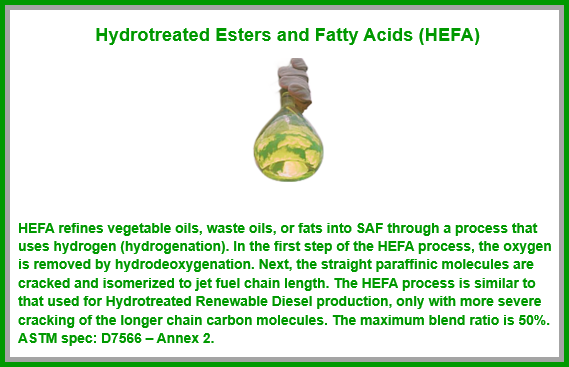
The article explains the test steps utilized to determine whether the SAF, here HEFA-SPK – a sustainable aviation fuel derived from reclaimed fats, produces far less carbon dioxide when burned. The P&W press release does not make it clear whether this test was performed to meet the relevant regulatory standards or ASTM. These processes are rigorous and may benefit from outside experts.

We tested a tried-and-true engine on 100% sustainable aviation fuel. It passed with flying colors.
V2500 test is part of RTX strategy to increase SAF use and help meet industry climate goals
The team gathered in Germany to test an aircraft engine’s ability to operate on the fuel of the future. It started by running that engine on the fuel of the past.
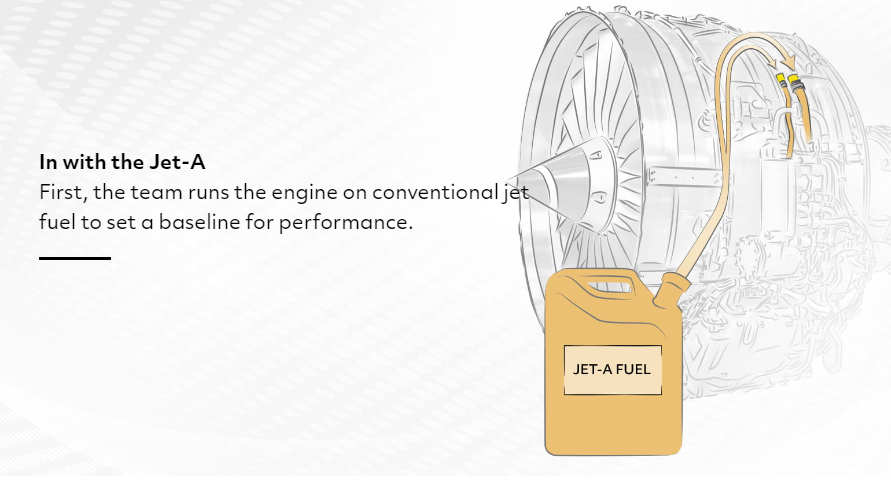
Jet-A fuel, made mostly of kerosene, coursed into the V2500 engine for the singular purpose of proving it was in good working order.
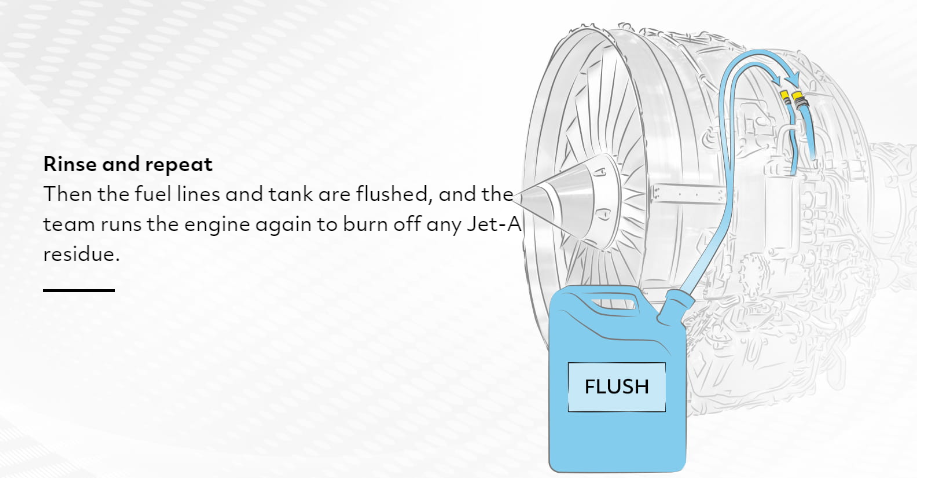
Then the team flushed the system and got down to the real business of the day: to show the engine could also run on a pure formulation of something called HEFA-SPK – a sustainable aviation fuel derived from reclaimed fats that produces far less carbon dioxide when burned.
There were NO SURPRISES; THE ENGINE PERFORMED EXACTLY AS THEY KNEW IT WOULD.
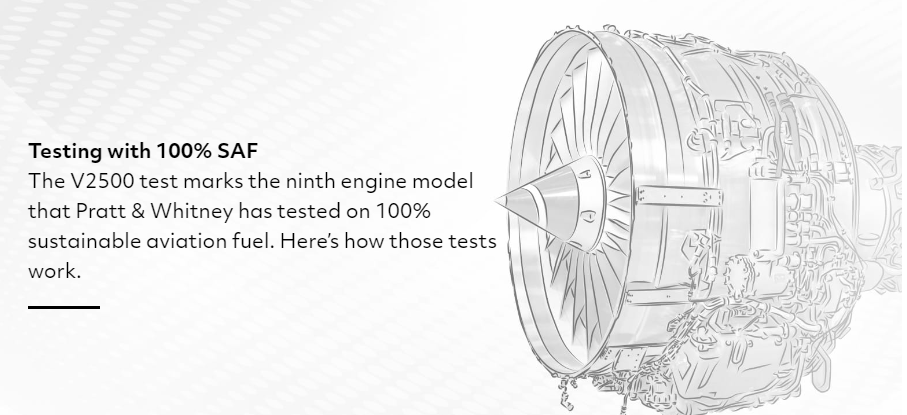
The V2500, made by IAE International Aero Engines AG, is the ninth engine Pratt & Whitney has tested on 100% sustainable aviation fuel, or SAF, since 2022. (Pratt, an RTX business, is a member of the IAE consortium.) That track record – which includes testing three auxiliary power units on 100% SAF – reflects the commitment of Pratt and RTX as a whole to helping the aviation industry reach net-zero carbon emissions by the year 2050.
“SAFs are a critical lever for the decarbonization of aviation,” said Sean Bradshaw, senior technical fellow for Sustainable Propulsion at Pratt & Whitney. “They really are key to the industry achieving its environmental goals.”
The engine that could (and has)
The V2500 is a two-shaft turbofan engine and one of the most enduring, hardworking propulsion systems out there. Because it powers so many aircraft, it’s one of many high-priority engines being tested on 100% SAF.
The V2500 engine:
- Powers commercial, military and cargo aircraft.
- Has been in service since 1989.
- Currently flies on nearly 3,000 aircraft.
- Can be found on the Airbus A319, A320 and A321, as well as the Embraer C-390 Millennium.
“This test demonstrates to our customers who are invested in the lifecycle of the V2500 that this engine continues to play a part in IAE’s sustainability strategy,” explained Brandon Naples, associate director of V2500 Business Strategy at Pratt & Whitney.
In addition to Pratt & Whitney, the IAE consortium includes Pratt & Whitney Aero Engines International (PWAEI), Japanese Aero Engines Corporation (JAEC), and MTU Aero Engines AG. The test took place in March 2024 at MTU’s maintenance, repair and overhaul facility in Hannover, Germany.
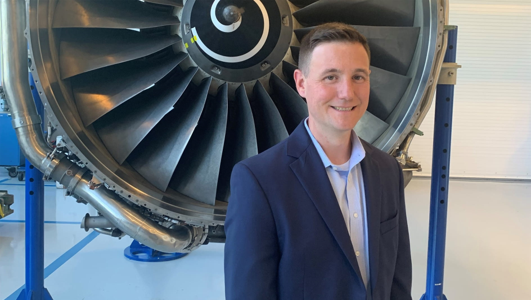
“This test demonstrates to our customers … that this engine continues to play a part in IAE’s sustainability strategy.”
Brandon Naples | Associate Director of V2500 Business Strategy | Pratt & Whitney
